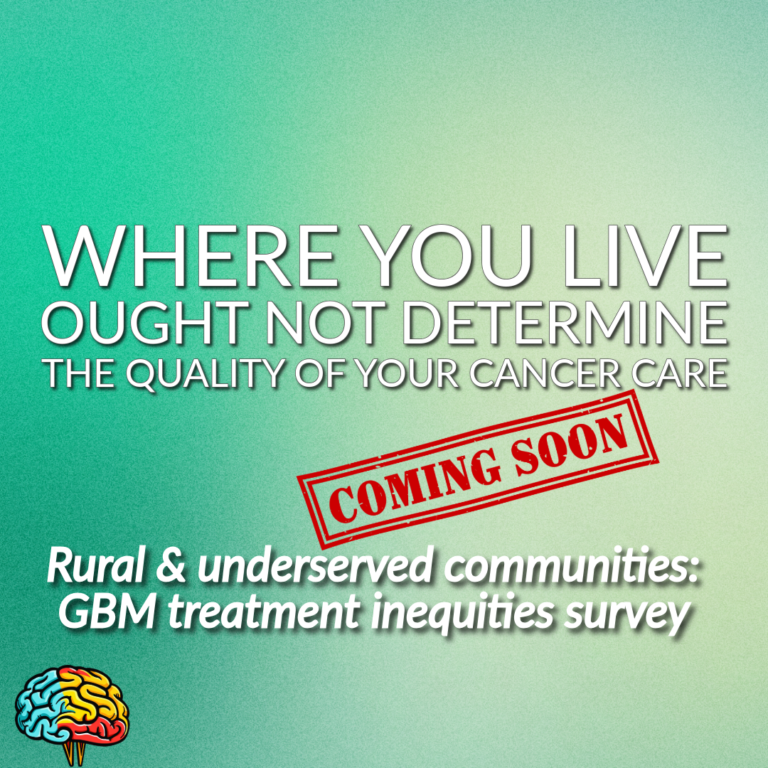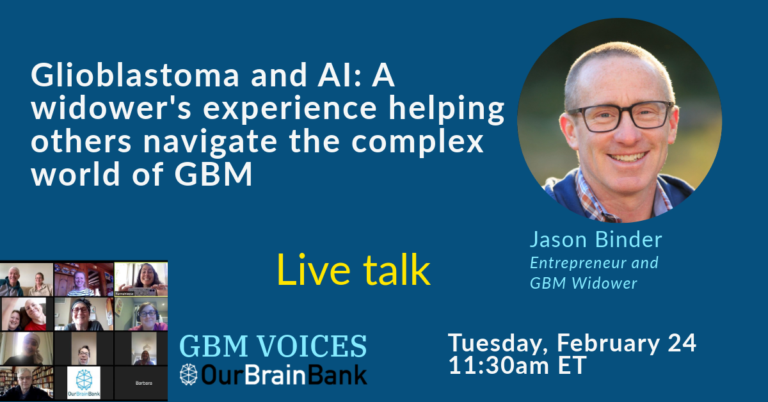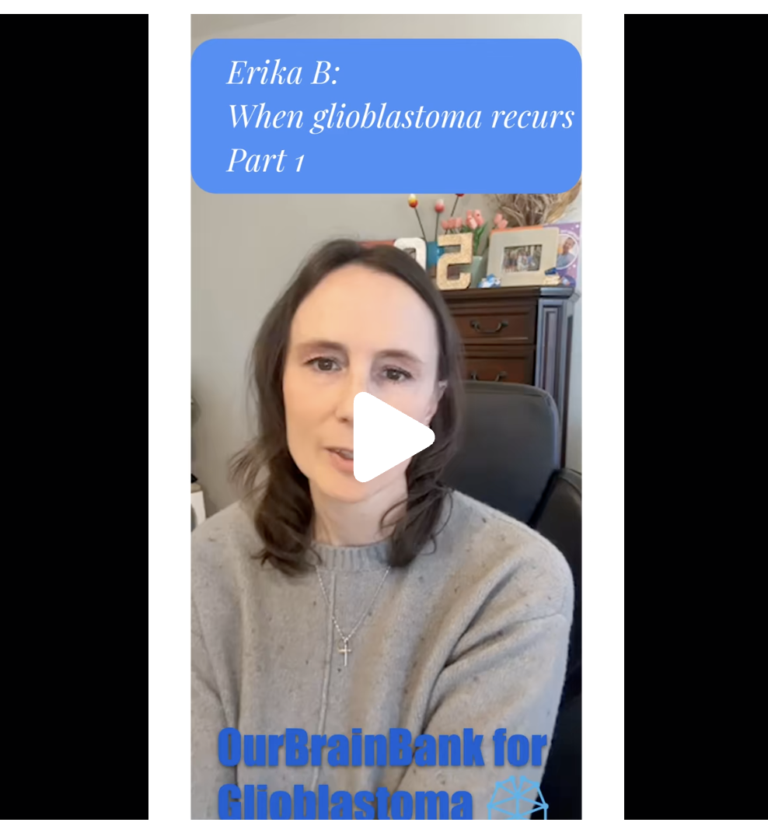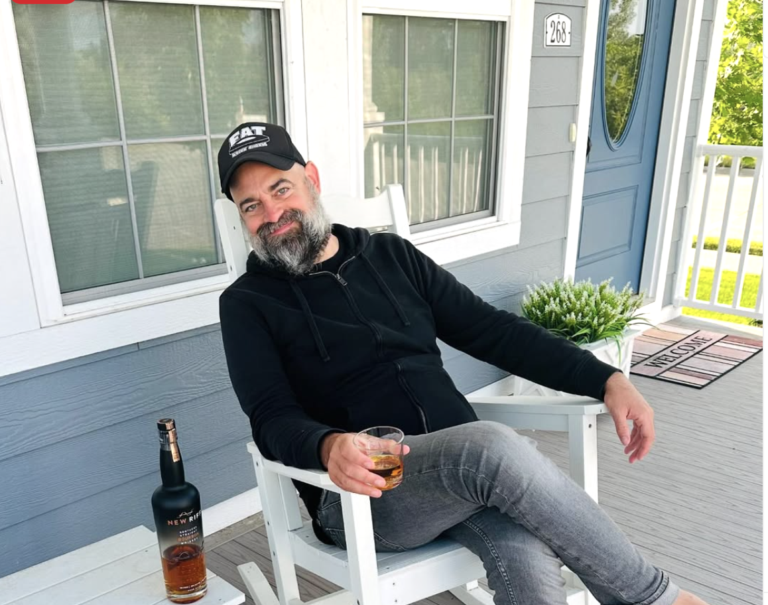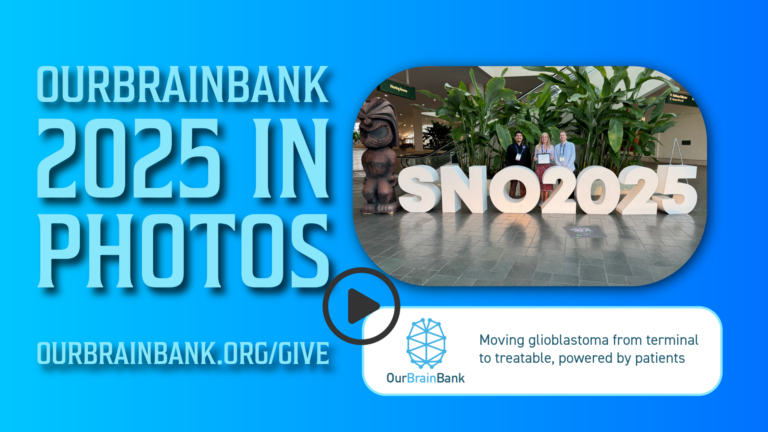August 2025
GBM Data: OurDataBank
PRESS RELEASE
November 2025
For immediate release
66% OF GLIOBLASTOMA PATIENTS NEVER OFFERED A CLINICAL TRIAL
Disparities in Glioblastoma Care Expose Systemic Failures
A national survey of more than 500 glioblastoma (GBM) patients and caregivers reveals deep and alarming inequities in how the deadliest type of brain tumor is diagnosed and treated — especially for those who aren’t wealthy, well-connected, or live near major cancer centers.
The disturbing results suggest that the promises offered by advances in personalized medicine tailored to the genomic makeup of patients’ tumors are not being fully realized. Thousands of Americans diagnosed with this deadly disease are being failed, despite the development of new approaches.
Conducted by New York-based nonprofit OurBrainBank, the survey found that even among a group that skewed younger, highly educated, privately insured, and living mostly in urban areas, basic care options were often missing:
- 54% NEVER discussed a 2nd opinion
- 34% not OFFERED tumor testing
- 66% not offered A clinical trial
- 69% not given a CHOICE about tissue storage for future treatment
“If this is what is happening in cities, our assumption is that it’s much worse in rural markets,” said OurBrainBank Executive Director Kelli Duprey. “Certain insurers forbid crossing state lines or going out of network, when treatment at an NCI designated cancer center may offer the best hope.”
GBM patient Melissa Collins shared: “The only person who ever advocated for my care was myself. No one told me about tumor testing or clinical trials. I had to Google it. It shouldn’t be this hard to get information that could save your life.”
A Fight for GBM Rights
This national survey builds on years of work by OurBrainBank to define and defend optimal care. In 2020, the nonprofit introduced the Glioblastoma Bill of Rights, a plain-language framework outlining what every GBM patient deserves — such as access to second opinions, tumor testing, and clinical trials.
A follow-up survey in 2023 revealed troubling gaps in adherence to these rights, prompting the current national study. The 2024 survey was developed with input from top neuro-oncologists including Dr. Quinn Ostrom (Duke), Dr. Fabio Iwamoto (Columbia), and Dr. Lakshmi Nayak (Dana-Farber), and was hosted by Konovo.
“If everyone were offered these “rights” — eg a second opinion or clinical trial, perhaps GBM could become less of a death sentence and more a treatable condition,” said Duprey.
The survey’s impact is already being recognized: it was accepted for presentation at major medical conferences including the American Society of Clinical Oncology (ASCO), and awarded the 2025 Society for Neuro-Oncology (SNO) Health Disparities & Quality Improvement Award.
Why This Matters
Glioblastoma is a fast-moving, fatal brain cancer with no known cure. It took the lives of John McCain, Ted Kennedy, and more recently, the New York Times reporter Rod Nordland. Newly diagnosed high-profile cases include author Sophie Kinsella and musician Michael Bolton.
“We implore the government, hospital administrators, doctors, and insurance companies to improve outcomes by offering all Americans with GBM high-quality personalized treatment. The current therapy protocol — the so-called Standard of Care — is far from equitable or effective. It’s also so toxic that it can wreck patients’ quality of life. There hasn’t been a new FDA-approved treatment since 2018,” said Duprey.
OurBrainBank founder Jessica Morris (1963-2021) was diagnosed with GBM in 2016. Her husband, Ed Pilkington, chair of OurBrainBank, said, “Jessica was in the scant 5% of people who survived for five years. She had exceptional care in world-class hospitals, but our survey shows that many patients are not so lucky. Personalized medicine is the future, but hope and promise are being squandered today by lack of access and glaring inequalities in treatment.”
Heartbreaking Testimonies from the Front Lines
Respondents shared real stories that reflect a fractured care system:
- “Fought with insurance the entire time when seeking a second opinion and other treatment options.”
- “Insurance would not cover genomic testing.”
- “Not allowed [by insurance] to go to another facility for a second opinion.”
- “I wished we would have known that there were trials before we did surgery.”
- “I’m angry the surgeon did not tell us to freeze the tumor, he only put it in paraffin, now my husband is inoperable, so we cannot use the tumor for a vaccine.”
Top neuro-oncologists agree that personalized treatment begins with tumor testing, which many of our respondents didn’t get. “I make sure my patients get this so that I can help them select the most effective treatments,” said Dr. Fabio Iwamoto, Deputy Head of Neuro-Oncology at Columbia University and OurBrainBank Medical Advisor.
Survey Snapshot
Timeline: February–September 2024
Participants: 525 total (23% patients, 77% caregivers/bereaved loss within one year)
Survey Tool: 36 HIPAA-compliant items
Demographics
- Median Age: 59 years old
- Gender: 58% male
- Education: 55% college degree or higher
- Insurance: 66% private insurance
- Race/Ethnicity: 88% white
- Geography: 86% urban, 14% rural
- Treatment Site: 49% received care at an NCI-Designated Cancer Center
- Average Distance to Treatment Site: 34 miles
Key Findings (Grouped Themes from the 2024 Survey)
Gaps in Personalized Care
- 36% reported not having mutational testing performed on their tumor
- 69% were not informed about storing tissue for analysis
- 36% never discussed FDA-approved tumor treating fields (Optune) as a treatment option
Barriers to Information & Options
-
- 54% were never offered a second opinion
- 66% were never offered clinical trial enrollment. Of those offered, 22% were either ineligible or declined
- 51% experienced diagnosis delays of one month to more than a year after initial symptoms
Insurance & Access Issues
- 22% reported being denied treatments or struggled to pay for care (e.g. surgery, meds, labs)
- 47% received financial assistance in the past 12 months
- 28% received disability benefits
- 7% were on Medicaid
Patient Satisfaction & Experience
- 40% rated their care experience as less than satisfactory, citing:
- Limited access to trials
- Gaps in advanced treatment
- Standard of care limitations
- Lack of personalization
Disparities by Education & Finances (ASCO 2025 sub-analysis)
- Lower education → less likely to:
- Be informed about tissue storage
- Receive MGMT/IDH testing
- Be offered a clinical trial
- Discuss a second opinion
- Lower education → lower satisfaction with care
- Financial hardship → lower satisfaction with care
Explore the findings: Data shared here reflect early findings presented at recent medical conferences (ASCO 2025, AONN 2024, SNO 2024). A full analysis will be published in a peer-reviewed journal. Posters and summary data from this survey are available at OurDataBank™ — a secure, ethical platform powered by patients: ourbrainbank.org/ourdatabank
OurBrainBank is an innovative, patient-led movement designed to move glioblastoma from terminal to treatable, powered by patients. It’s the first non-profit created by, with, and for people living with glioblastoma, an aggressive and rare brain cancer. The five-year survival rate is 5%. We believe in patient power and the importance of donating data to medical research.
OurBrainBank is a registered nonprofit 501(c)3 based in the US and registered charity in the UK.
Hashtags: #GBMDisparities #GBMRights #OurDataBank
More information or interviews (including current GBM patients, caregivers, and those who’ve lost a loved one): info@ourbrainbank.org or 909-274-9486
#
